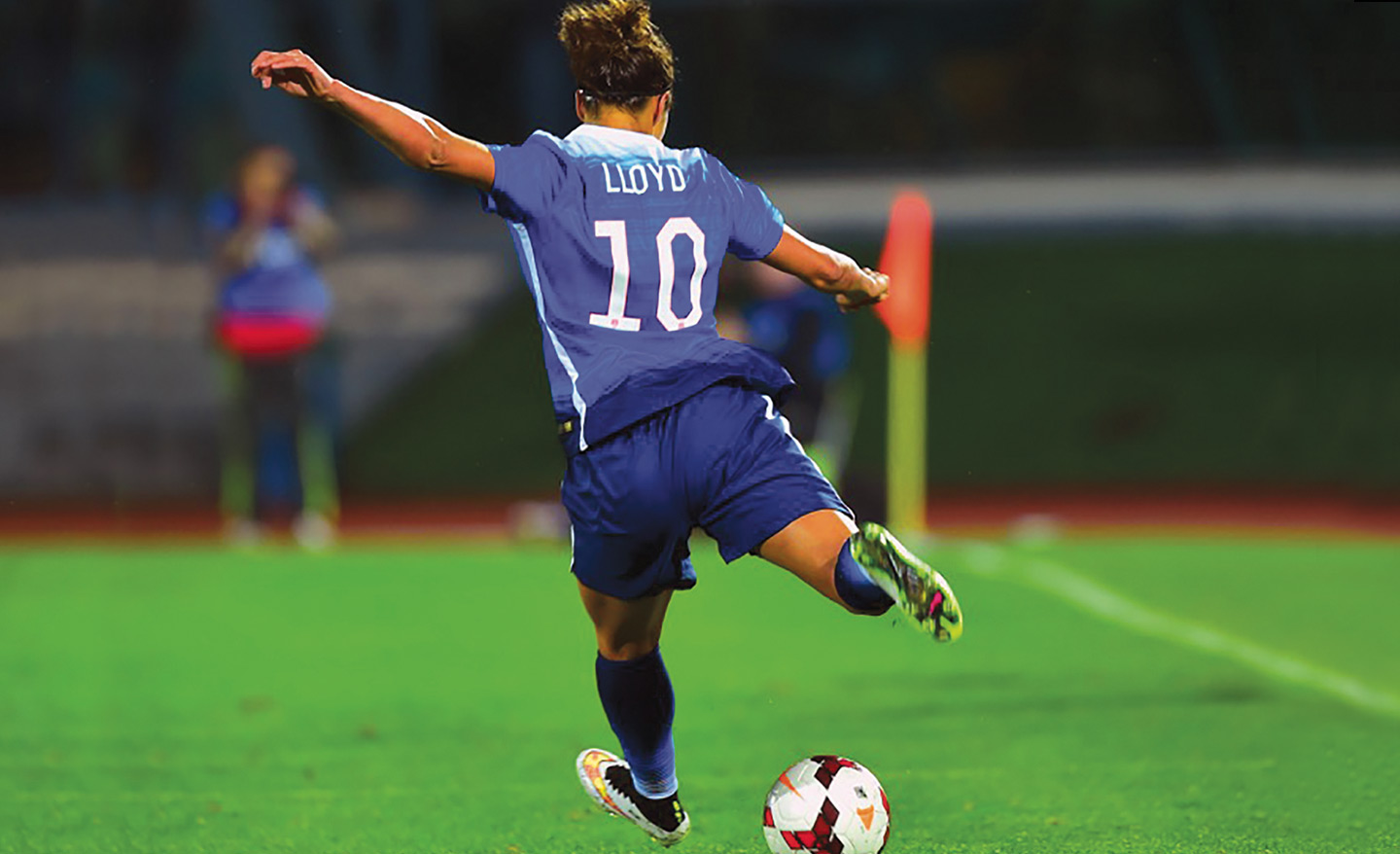Captain America
U.S. women’s national team captain Carli Lloyd recently visited campus.
THE IMAGE IS ETCHED in soccer history.
Star midfielder Carli Lloyd, already with two goals in the game, picked her head up and blasted the ball toward the net, nearly 60 yards away. The arching shot caught the goalkeeper off-guard, sending her helplessly stumbling as the ball careened off the post and into the back of the net.
Hat trick in the books and a World Cup victory sealed for the United States.
A video of her heroic goal, played before an enthusiastic crowd of more than 700, greeted Lloyd at Connecticut College in December 2016. The reigning world player of the year was on campus to discuss the challenges and opportunities
of her career, and to discuss her new
book, When Nobody Was Watching: My Hard-Fought Journey to the Top of the
Soccer World.
Before the event, Lloyd talked about setting an example for young players and described her book, a behind-the-scenes look at her early success, her personal struggles and eventual rise to stardom.
JA: Many of those in attendance at this event are young soccer players, particularly young girls. What’s it like to be a role model to these players?
CL: It’s huge. When I started playing, there weren’t many female soccer role models. It’s important for them to have someone to look up to who is real and genuine, and does the right things on and off the field. For me, it comes naturally. It’s who I am.
JA: In the past year, you went from being a well-known soccer player to being Carli Lloyd, Superstar. What has that been like?
CL: Humbling. It took me a while to get to this point. I’ve been doing many things along the way, under the radar, but I guess it took scoring three goals in a World Cup final to have people say, “Wow, who is this girl?” I’m definitely under a microscope now; I can’t go out shopping without getting recognized. But I haven’t changed as a person.
JA: Equal pay for men’s and women’s soccer players is a big issue in the sports world. What progress is being made to shift the balance?
CL: I think, ultimately, we’ll get the deal that we want. Men’s soccer players make most of their money at their club teams; for women, our international teams are our main source of income. When it comes down to bonuses [winning international competitions], we feel we should be paid equally.
JA: What was it like writing this book about your life and career?
CL: My trainer, James Galanis, told me to start journaling and saving everything because we’d write a book someday. That was in 2003—and I didn’t believe him. But now seemed like the right time to get my story and my message out because I think it’s a true underdog, grind-it-out journey. It can relate to anybody on a number of levels. Anyone can pick up the book and be inspired.
